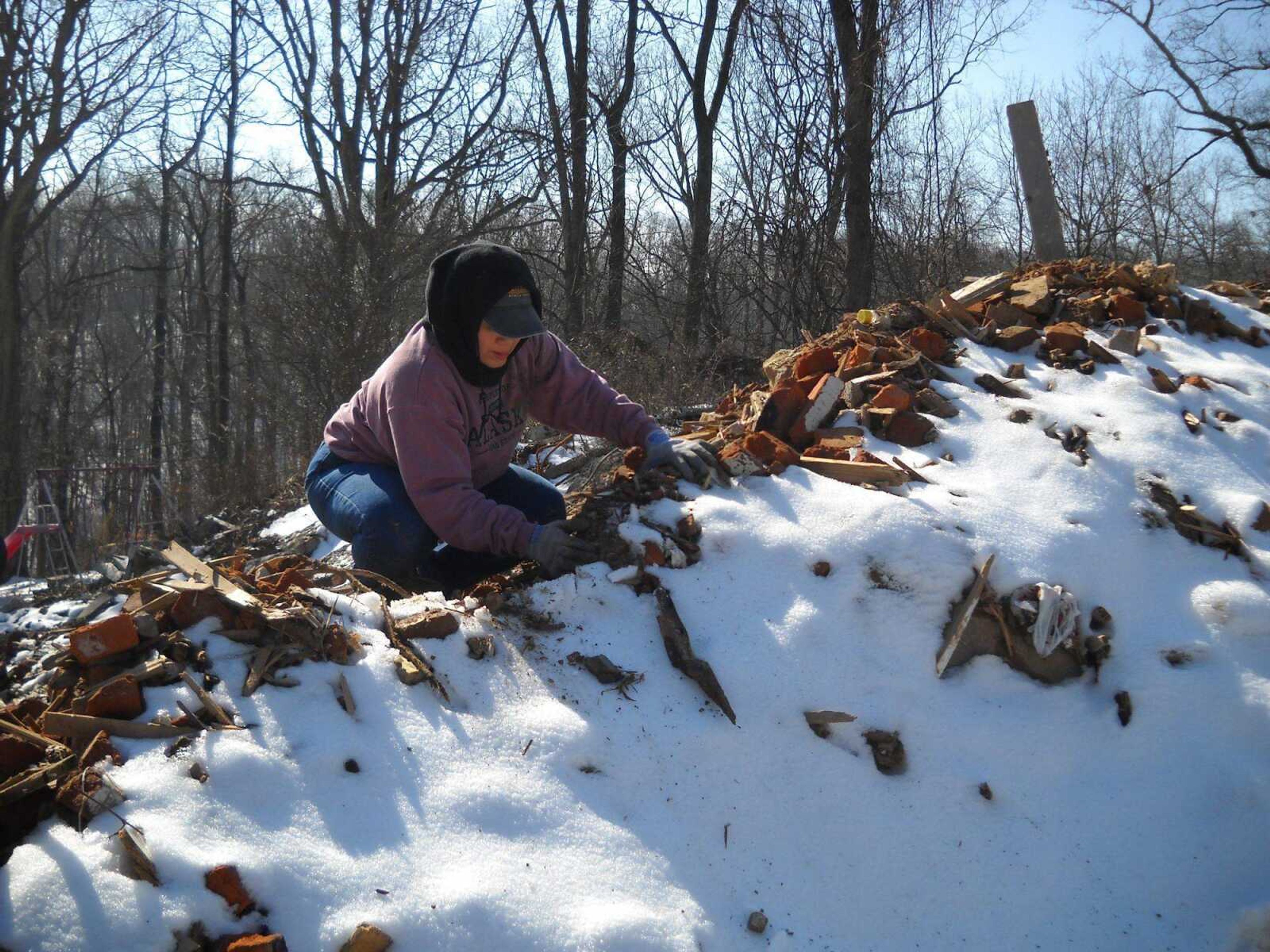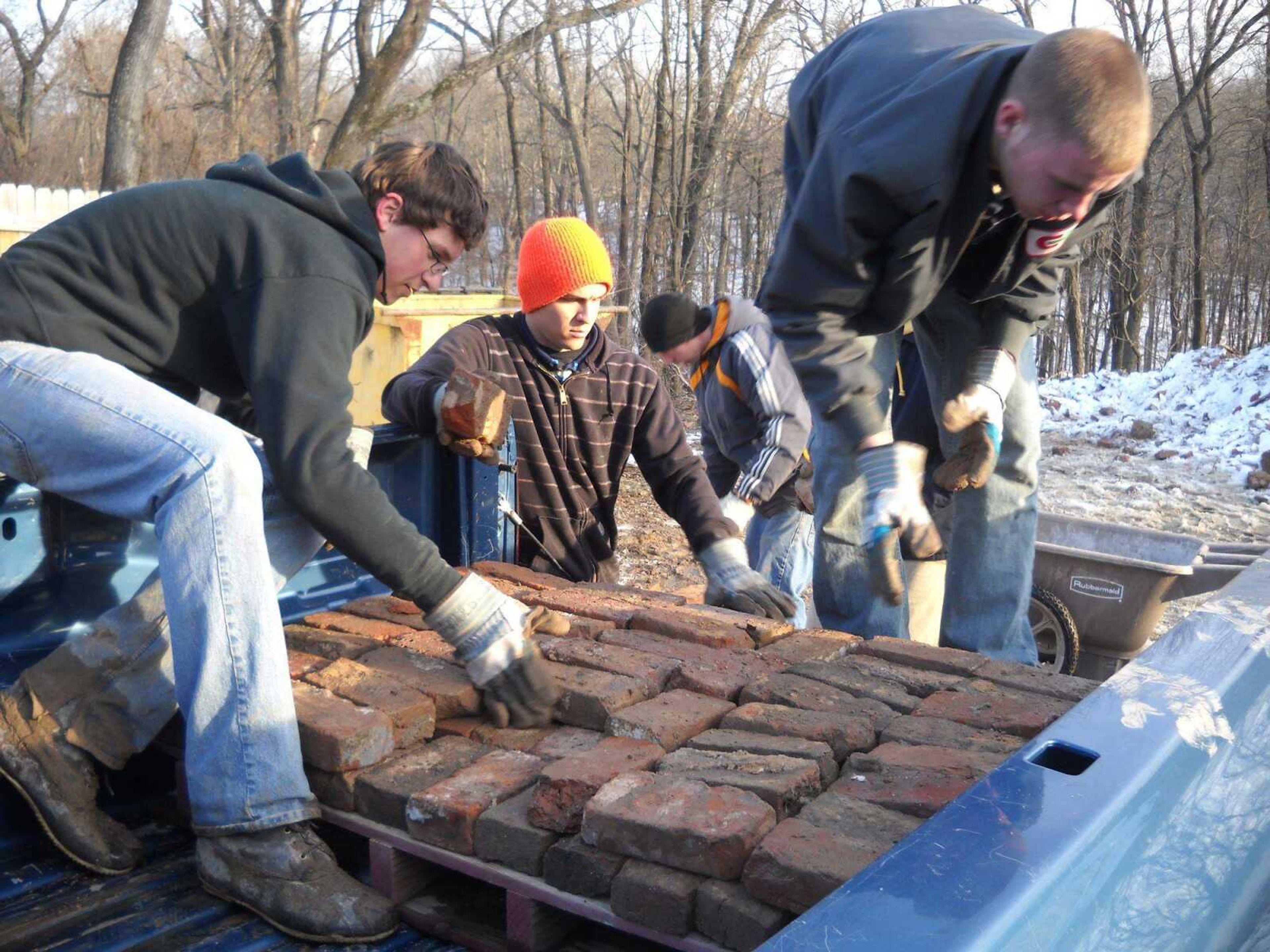Bricks for the birds
When the old Washington School on North Fountain Street in Cape Girardeau was demolished and its debris swept away last summer, a home was lost. The school's brick chimney was home to more than 1,000 birds known as chimney swifts. During August and September, the birds stop in Cape Girardeau while migrating back to South America after breeding in the Northern Hemisphere...
When the old Washington School on North Fountain Street in Cape Girardeau was demolished and its debris swept away last summer, a home was lost. The school's brick chimney was home to more than 1,000 birds known as chimney swifts.
During August and September, the birds stop in Cape Girardeau while migrating back to South America after breeding in the Northern Hemisphere.
Omayra Hayward, member of the Swamp Candle Birders birding group, wants to see the birds return to the area this year. In order for that to happen, she said, they must first have a place to live.
Chimney swifts usually reside in upright hollow trees, but they take to living in brick chimneys when a suitable habitat cannot be found. Chimney swifts can only perch vertically, and are able to hang onto brick mortar inside a chimney. They construct nests that stick together and to the side of the chimney with saliva.
The birds stay in large groups during migratory periods, spending most of their lives in the air. They are known to help control insect populations.

Hayward said the birds are interesting and finding a way to keep them coming to Cape Girardeau each year has become a project dear to her heart. Hayward and Ellen Hahs, president of the Swamp Candle Birders and education curator at Southeast Missouri State University's Crisp Museum, have spearheaded the project to build a new habitat for the chimney swifts near the newly constructed university Autism Center, which has taken the place of the old school building.
Hayward said first she had to find out how to replace the birds' habitat. She began researching the species and contacted authors of a book on how to construct a chimney swift tower from bricks and sand mortar. Hayward also gained support for the project from the Missouri Department of Conservation and Bob Gillespie, a local natural history biologist. She began a search for materials and funding. She needed 3,000 bricks to complete the inside of a tower, which when completed would require inside and outside layers of bricks at a height of about 45 feet.
Hayward said she checked at city hall to see if any brick homes were being torn down. A battalion chief at the Cape Girardeau Fire Department told her to contact Kenny Pinkston with Prestige Development. Pinkston was in charge of tearing down buildings on Broadway, and told Hayward she was welcome to collect bricks for her project.
"He was very open to helping us out," she said.
She called Teen Challenge Mid-America, which sent four groups of afternoon work program participants to collect the bricks. Volunteers from the Cape Girardeau Nature Center also aided in the collection, and the Missouri Department of Conservation provided trucks for transport, Hayward said.
After the Broadway collections in February and March, 1,200 bricks were still needed for the tower interior. Hayward called Kasten Masonry in Jackson to see if the business had any special prices available on bricks and other materials. The company's sales manager, Billy Gage, offered to donate the needed bricks.
"It's not always the case that someone needs the type of materials we are able to supply, but in this case it was a perfect match," Gage said.
Gage said he told Hayward to keep the business in mind for help in the future, and Hayward said she expects the business will also help provide materials for the outside of the tower.
Hayward said Hahs has been in talks with the university, specifically facilities management, about permission for building the tower on the university-owned property in the vicinity of the Autism Center, but no decision has been made. Hayward said she is hopeful an approval from the university will come by June and, if granted, construction on the project could begin as early as July. She has applied for a grant for more funding and still needs to find sand and mortar materials and a mason to construct the tower.
"We really want to create the same kind of home that [the birds] had," Hayward said.
The Missouri Department of Conservation hosts "Chimney Swift Night Out" each year to highlight the return of the chimney swifts. In the past, community members brought lawn chairs to the area near the school and watched as hundreds of the birds return to the chimney for the night, Hayward said.
If the project is successful, Hayward said, she hopes it will begin a trend in the area of preserving wild bird habitats.
"In the future, it is possible that more habitats will need to be provided, because there are probably other buildings where chimney swifts live that could be demolished," she said.
She also foresees the project becoming an educational opportunity for the community and a place where families can visit to learn more about wildlife. Hayward said if the tower is built and she can secure additional funding, she would eventually like to add an information kiosk to the site.
Recently, she has been in talks with a local gardening club and is hopeful its members will help landscape the area around the tower.
Connect with the Southeast Missourian Newsroom:
For corrections to this story or other insights for the editor, click here. To submit a letter to the editor, click here. To learn about the Southeast Missourian’s AI Policy, click here.










